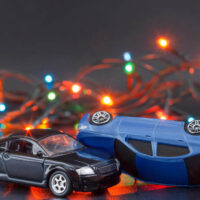How Night Driving Contributes to Drowsiness

While nighttime driving is not usually ideal, it is unavoidable sometimes—especially for those who work night shifts, work as truck drivers, or regularly tackle cross-country drives for trips. Without careful preparation and planning, night driving can cause significant drowsiness and increase the likelihood of being involved in a crash.
Learn more about the connection between night driving and drowsiness—and how you can protect yourself. Call John H. Ruby & Associates at 502-373-8044 to set up a consultation with our team now.
Factors Contributing to Nighttime Drowsiness
There are numerous factors that make nighttime drowsiness nearly inevitable, even if you do your best to rest ahead of time. Your natural circadian rhythm urges you to sleep when it starts to get dark out, reserving your energy and wakefulness for daytime hours. This is true even for night workers, who must actively work against their circadian rhythm, to have any sort of regular sleep schedule. The roads are also much quieter at night, making it easy to zone out and get drowsy. It’s even worse on long, dark stretches of road, where there is little to hold your attention.
Your vision may be limited when driving at night. Bright lights can actually worsen this sensation, as the glare can temporarily blind you and cause headaches. As your eyes strain more and more to stay focused, drowsiness and headaches may set in.
Most people naturally want to sleep at night, and driving at night means intentionally going into sleep debt and combating fatigue. While some drivers can do this without issue, others see their driving skills decrease dramatically.
Cognitive Factors Leading to Drowsiness
In addition to the physical factors leading to drowsiness, cognitive issues may put you at greater risk of a crash. Night driving triggers anxiety and stress in many drivers, particularly those who don’t often drive after dark. This type of mental strain can lead to fatigue. Drivers also tend to experience diminished alertness at night, making it a challenge to concentrate on the road, stay focused, and respond quickly and appropriately to obstacles.
The Connection Between Drowsiness and Accidents
There is a very clear connection between fatigued or drowsy driving and car accidents. Numerous institutions have spoken out about this trend, including the CDC, the National Highway Traffic Safety Administration, and the Sleep Foundation. Per the CDC, one in 25 adults has fallen asleep while driving within the past 30 days.
Those at greatest risk include those who regularly sleep six or a few hours per day. In 2017, drowsy driving was a factor in 91,000 crashes. The Sleep Foundation reports that microsleeps are a serious issue—microsleeps happen when a person falls asleep for a few seconds. They are very brief and incredibly dangerous when driving. Research indicates that sleep deprivation causes significant mental impairment. Being awake for 24 hours straight is comparable to having a BAC of 0.10%, which exceeds the legal level.
Improving Outcomes
While there are many things you can do temporarily to boost your energy levels and power through a nighttime drive, the only way you can consistently drive more safely at night is to get enough sleep every single day. If you must drive when you are usually sleeping, plan ahead. Take an evening nap to fuel up before you hit the road, and do not drink any alcohol prior to your drive.
You should also double-check your medications to ensure that none of them cause drowsiness or require that you not operate heavy machinery. While you can use soda, energy drinks, or coffee to boost your energy levels temporarily, avoid relying on them exclusively. They should be paired with a pre-drive nap and generally good sleep habits that will allow you to bounce back from your nighttime drive with ease.
Choose John H. Ruby & Associates for Your Car Accident Claim
If you’ve been injured in a crash caused by a drowsy driver, you are not alone. This is a growing problem across the United States, and accident rates are still on the rise. The team at John H. Ruby & Associates wants to help you fight for the compensation you deserve. Just call us at 502-373-8044 or connect with us online to set up a consultation now.
